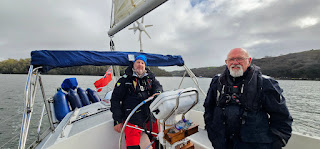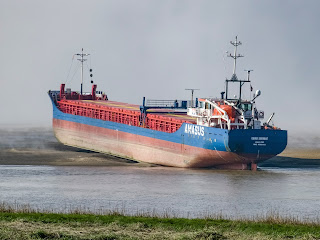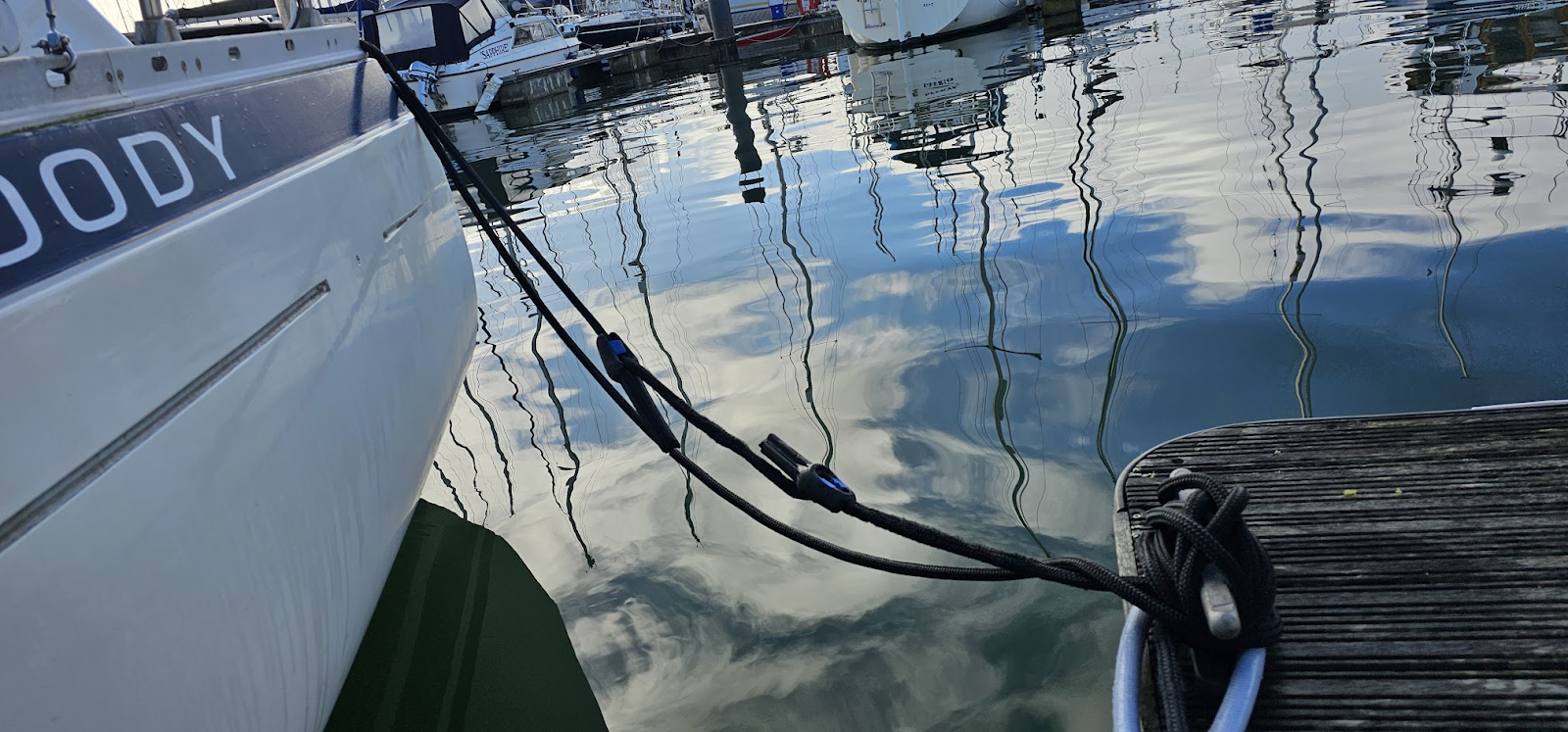Last week was a happy kind of carnage. Cheltenham Festival, or as the locals prefer to call it, Race Week. I'm not a advocate of gambling. In fact, I'm far, far from an advocate of gambling. What you do with your money is your own affair, but it catches and ensnares the vulnerable in some of the worst possible ways.
Neither am I a fan of horse racing. I understand these beautiful creatures are bred to run, presumably love to run, and I understand the thrill of a race. But there is an inescapable cruelty that that runs with with it that I can't abide or condone.
But I'm complicit. Every year, we as a band accept a four evening residency at a favourite Cheltenham pub and play to the crowds as they throng into the bar on the back of the races ending each day. It's always a mad, crazy week and this year was no exception.
By Friday evening, I was exhausted, my throat raw and my ears deadened. Entirely self inflicted. It had been a great gig to end a week of great gigs. We packed up, I dropped the band's trailer back in the garage, and then Dad picked me up from home and we headed down to the boat.
With Dad's driving, it was a two and a half hour trip even on mostly empty roads, but he got us there safe, and by 0100 Saturday morning we were aboard, and I had a cold beer in one hand as a nightcap and a book in the other as I settled down for the few hours remaining to the night.
The alarm got me back out of my bunk at 0700. It had been raining through the night, with more rain forecast for the afternoon, but the morning was still and the rain momentarily paused as I set about taking down the cockpit tent and readying the lines to cast off.
HW Plymouth was due for 0941, which would see the tide still set foul for the west until almost 1300, but the forecast suggested a brief break in the rough weather we'd had on Friday, with winds from the SSE at around 14 knots gusting up to 20. By 1600 to the west in Fowey, the weather was supposed to close back in with heavy rain and gusts up to 30 knots.
So the plan was to leave early and punch the fowl morning's tide to Fowey, shelter in Fowey Harbour overnight and then enjoy what was expected to be much fairer weather for the sail home Sunday.
Saturday 16th : Plymouth to Fowey
(23.3 nautical miles, 4 hours 54 minutes underway)
Our friend Mark was supposed to join us for 0830, but he was delayed, not getting to us until a little after 0900. Nonetheless, we were set and ready to cast off by 0930, the rain still holding off though the wind now beginning to pick up a little.
Mark took the bow line, Dad took custody of a roaming fender to place between us and anybody my helmsmanship might offend, and I took the helm and the midships spring set up to slip from the aft clean on our pontoon. Mark let the bow go, I slipped the spring, and I nudged her astern.
My plan had been to swing to starboard as soon as the nose was clear of the pontoon, nudge her forward to gain a little space, then back astern to starboard to line myself up motor ahead down the fairway and out to open water.
It didn't work. The width of the fairway didn't give me enough room to gain rudder authority before I was forced to put the engine back ahead to stop us bouncing into the boats berthed on the row opposite. So the planned elegance of my intended departure descended into a series of shuffles back and forth between the rows of the fairway, taking care not to hit anybody, until, through merit of the prop-walk to port as much as any accuracy or plan from the helm, I finally her lined up down the fairway to leave astern.
There was no panic and no collision, so I'll take that as a win. But I really need more practice at this.
Under grey skies, we motored across the Sound and out to the western entrance. Once clear of the shelter of the harbour we put her nose into wind and sea and set about hauling up the mainsail.
It was bouncy, and Dad had trouble keeping her set to windward, but we managed it. Another lesson (re)learned; I should've committed and put the mainsail up whilst we were still in the shelter of the Sound.
Conscious of the forecast of heavy weather ahead, and the expectation of gusts up to 20 knots across the morning, we left the main heavily reefed, and set the kicker using the aluminium horseshoe. We initially unfurled the headsail leaving it still reefed with a roll, but as we settled onto our westerly reach, the apparent wind averaging 14 knots but gusting to 17 or 18, it was clear Petrella was happily untroubled by the conditions, so we relented and let the genoa out in full.
We made a steady 5 to 6 knots over the ground, despite the foul tide. Leaving Rame Head behind, the visibility closed in with the rain, cutting us off from sight of land. But we had the company of another yacht occasionally appearing through the murk to seaward, of similar size and holding the same course as us, often hull down in the swell. And as the rain got heavier, we were joined by dolphins.
The first few were disinterested, crossing close astern of us and then disappearing. But within the hour we were joined by a couple more who stayed and played on our bow a while. We were bouncing around a fair bit, so rather than rushing to the bow myself to take photos, I enjoyed their company with Mark and Dad from the security of Petrella's cockpit.
An hour or two later, off the harbour village of Polperro, I saw gannets ahead and to port in a frenzied huddle, circling and dive bombing what must've been a shoal of fish close to the surface, whist the successful ones bobbed on the surface enjoying their catch. In amongst the melee, I thought I saw a fin or two, and as the frenzy passed to port by a cable's length or so and we left it astern, a couple of dolphins broke off from their lunch and came skipping over the waves to join us.
The rain eased, and the cloud lifted a little to starboard, revealing the gloaming Cornish shore and the mouth of Fowey Harbour slowly faded into vision ahead. Just outside of the harbour, we started the engine and put away the headsail, cutting ahead of Wolfchild, the yacht that had shadowed us for most of the afternoon, who elected instead to sail in.
Within the harbour we put away the main and made our way over to Berrills Yard pontoon, where we found just enough space to come alongside behind a small powerboat and the harbourmaster's launch. We came alongside nose into the ebbing tide, the wind astern, with no significant mishap. As we were putting up the canopy to keep the worst of the damp and rain out of the cockpit and companionway, another yacht, a Hallberg-Rassy 34 called "Ragnar" came in looking for a berth. With the little power boat and the harbour master taking up most of the available space on the pontoon, we invited them to raft up alongside us.
Everything safe and secure, we retired to the
Gallants Sailing Club for a pint at their bar, before moving on to
The Lugger for supper.
Sunday 17th : Fowey to Plymouth
(23.7 nautical miles, 5 hours 12 minutes underway)
It was a comfortable night. The following morning we indulged in a slow start, making the boat ready, but letting Ragnar decide on the time to leave, the weather forecast benign and the tide staying fair to the east until about 1400.
We finally cast off at 1030. Patchy blue sky overhead and a gentle southerly wind blowing straight into the harbour, we took advantage of the calm conditions and raised the full main as we were making our way out.
Clear of the harbour mouth, we stopped the engine, let out the genoa and turned to port, to lay distant and still unseen Rame Head. The wind was light, around 9 knots on our starboard quarter, giving us around four and a half knots over the ground on a broad reach, the swell occasionally knocking the air of of the sails.
The sail back was pleasant and uneventful, the late winter sun all but a constant warmth on our shoulders. We watched Ragnar disappear ahead, their speed reported on the AIS either suggesting they were motor-sailing, or that they had their own special wind. Each to their own, we were in no rush,
Eventually passing Rame Head and turning for the western entrance, the wind went astern, so we crossed the Sound in a series of gybes until it was time to turn head to wind and douse the sails in favour of the engine.
Entering Queen Anne's Battery, the breeze remained astern. I edged gently into the fairway leading to our berth, but left my final turn too late. Knocking the engine astern arrested the movement ahead, whilst the momentum of the hull briefly continued our turn to port even with the helm now locked against it. Before the momentum wore off, I nudged her ahead again, this time on a much better line, and entered the berth.
Mark, on the bow, lassoed the forward cleat, but I got the midships spring onto the end pontoon cleat first and motored gently ahead against that to hold Petrella in whilst I secured the remaining lines to make her fast.
We then set about putting her away, sail cover on, cockpit tent back up and hovered and cleaned below before locking up and hitting the road to head for home. It had been a fine weekend and, although looking forward to seeing Nikki and the dogs again, I found myself sorry to leave her.





























